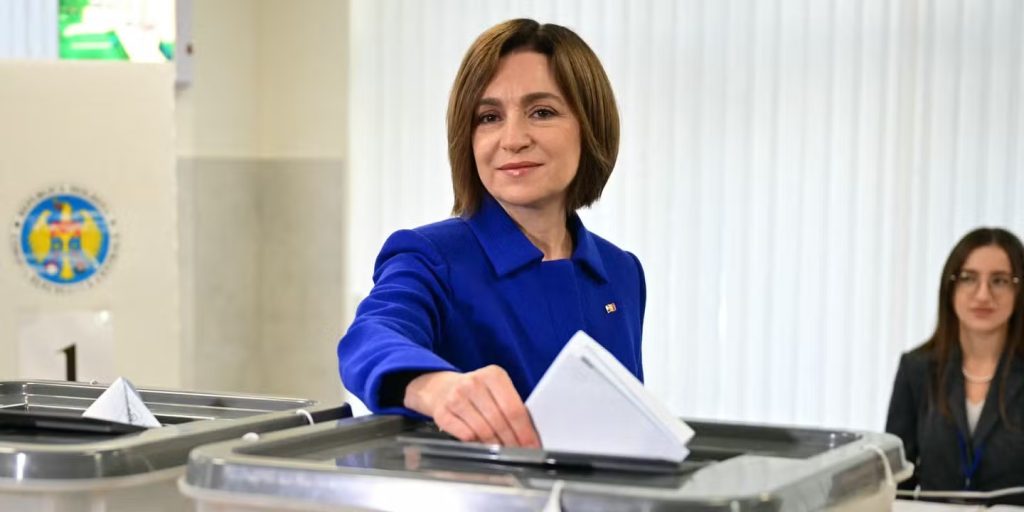By Eniola Amadu
The pro-European Party of Action and Solidarity (PAS), led by Moldovan President Maia Sandu, has secured a decisive majority in parliamentary elections.
With nearly all ballots counted, PAS won 50.17 percent of the vote, according to Moldova’s central electoral commission.
The result gives the party 55 seats in the 101-seat parliament, enough to form a government without the support of smaller groups such as the Alternativa bloc or the populist Our Party.
READ ALSO: Moldova votes in crucial election
The pro-Russian Patriotic Electoral Bloc came second with 24.18 percent. Voter turnout stood at 52 percent, higher than in previous elections.
The result is being seen as a clear win for Sandu, who has positioned herself as a pro-European leader intent on moving Moldova closer to the European Union.
European Commission President Ursula von der Leyen congratulated Moldovans, saying they had chosen “Europe, democracy and freedom.”
Polish Prime Minister Donald Tusk also praised Sandu, saying she had “saved democracy” and prevented Russia from extending its influence.
Ukrainian President Volodymyr Zelensky added that the election demonstrated that “Russia’s destabilising activity loses, while Moldova in Europe wins.”
Sandu had earlier warned of “massive Russian interference” in the electoral process.
In the run-up to the vote, Moldovan police reported evidence of disinformation campaigns and attempts at vote buying.
Several individuals were arrested on suspicion of plotting unrest, including men allegedly trained abroad.
Bomb threats were also reported at polling stations both inside Moldova and in countries with large Moldovan communities such as Italy, Romania, Spain and the US.
Despite claims from opposition leader Igor Dodon that his bloc had won the election, the results point to a convincing victory for PAS.
Dodon had urged supporters to stage protests outside parliament in Chisinau, but demonstrations were small, largely involving elderly citizens, and showed little momentum.
The Kremlin expressed concerns that Moldovan citizens in Russia were unable to vote easily, citing a limited number of polling stations.
READ ALSO: Moldovan regional leader jailed for seven years over Russian funding
Russia’s embassy in the UK dismissed reports of interference as government propaganda.
Moldova, situated between Ukraine and Romania, continues to face economic challenges, including inflation and corruption, while managing tensions with the pro-Russian breakaway region of Transnistria.



